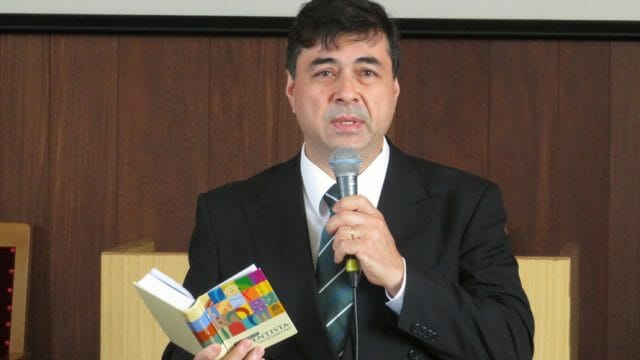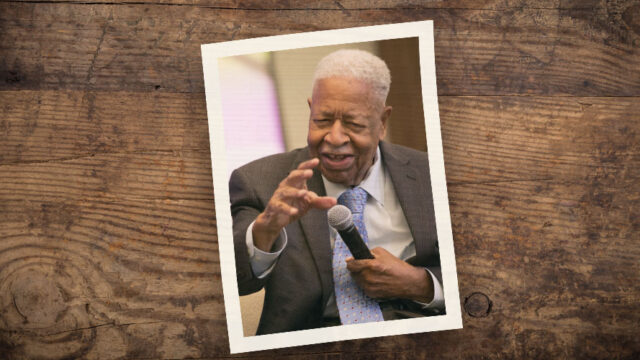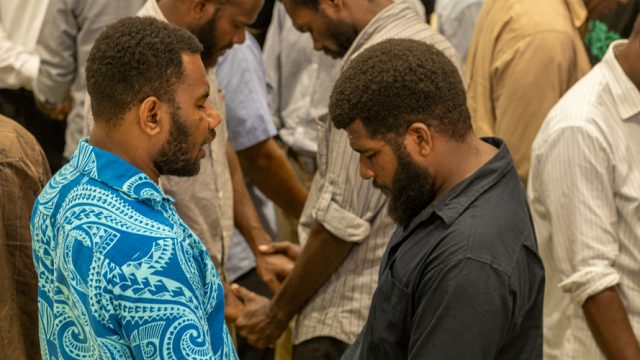To be friends to the friendless and fathers to the orphans

In keeping with this month’s theme, we share various statements from Ellen G. White. She promoted inclusionary methods for our worship family. Her words substantiate the need for this ministry within the church.
He will not hearken to the prayer of His people while the orphan, the fatherless, the lame, the blind, and the sick are neglected among them.”
—Testimonies for the Church [Mountain View, Calif.: Pacific Press Pub. Assn., 1948], vol. 3, p. 518
When you succor the poor, sympathize with the afflicted and oppressed, and befriend the orphan, you bring yourselves into a closer relationship to Jesus.”
—Testimonies, vol. 2, p. 25
Widows and invalids are in the church to prove a blessing to the church. They are a part of the means which God has chosen to develop the true character of Christ’s professed followers and to call into exercise the precious traits of character manifested by our compassionate Redeemer.”
—Testimonies, vol. 1, p. 273
The more able should ever act a noble, generous part in their deal with their poorer brethren, and should also give them good advice, and then leave them to fight life’s battles through. But I was shown that a most solemn duty rests upon the church to have an especial care for the destitute widows, orphans, and invalids.”
—Testimonies, vol. 1, p. 274
But there was a decided want of care for widows, orphans, and the feeble of the flock. Besides some interest for the cause in general, there was but little apparent interest for any only their own families. With so narrow a religion they were dying a spiritual death.”
—Testimonies, vol. 2, p. 19
Responsibility of the Church
Fatherless and motherless children are thrown into the arms of the church, and Christ says to His followers: Take these destitute children, bring them up for Me, and ye shall receive your wages. I have seen much selfishness exhibited in these things. Unless there is some special evidence that they themselves are to be benefited by adopting into their family those who need homes, some turn away and answer: No. They do not seem to know or care whether such are saved or lost. That, they think, is not their business. With Cain they say: ‘Am I my brother’s keeper?’ They are not willing to be put to inconvenience or to make any sacrifice for the orphans, and they indifferently thrust such ones into the arms of the world, who are sometimes more willing to receive them than are these professed Christians. In the day of God inquiry will be made for those whom Heaven gave them the opportunity of saving. But they wished to be excused, and would not engage in the good work unless they could make it a matter of profit to them. I have been shown that those who refuse these opportunities for doing good will hear from Jesus: ‘As ye did it not to one of the least of these, ye did it not to me.’ Please read Isaiah 58: [verses 5-11].”
—The Adventist Home [Nashville: Southern Pub. Assn., 1952], pp. 167, 168 [boldface supplied]
The work of saving the homeless and the fatherless is everyone’s business.”
—The Adventist Home, p. 169 [boldface supplied]
All who profess to have a Father in heaven, who they hope will care for them and finally take them to the home He has prepared for them, ought to feel a solemn obligation resting upon them to be friends to the friendless and fathers to the orphans, to aid the widows, and be of some practical use in this world by benefiting humanity.”
—The Adventist Home, p. 169 [boldface supplied]
Open Homes to Orphans and Friendless
As far as lies in your power, make a home for the homeless. Let everyone stand ready to act a part in helping forward this work. The Lord said to Peter: ‘Feed my lambs.’ This command is to us, and by opening our homes for the orphans we aid in its fulfillment. Let not Jesus be disappointed in you.”
—The Adventist Home, p. 170 [boldface supplied]
Those who have pity for the unfortunate, the blind, the lame, the afflicted, the widows, the orphans, and the needy, Christ represents as commandment keepers, who shall have eternal life. . . . Christ regards all acts of mercy, benevolence, and thoughtful consideration for the unfortunate, the blind, the lame, the sick, the widow, and the orphan as done to Himself; and these works are preserved in the heavenly records and will be rewarded. On the other hand, a record will be written in the book against those who manifest the indifference of the priest and the Levite to the unfortunate, and those who take any advantage of the misfortunes of others and increase their affliction in order to selfishly advantage themselves. God will surely repay every act of injustice and every manifestation of careless indifference to and neglect of the afflicted among us. Everyone will finally be rewarded as his works have been.”
—Testimonies, vol. 3, pp. 512, 513 [boldface supplied]
There are orphans that can be cared for; but many will not venture to undertake such a work; for it involves more labor than they care to do, leaving them but little time to please themselves. But when the King shall make investigation, these do-nothing, illiberal, selfish souls will then learn that heaven is for those who have been workers, those who have denied themselves for Christ’s sake. No provisions have been made for those who have ever taken such special care in loving and looking out for themselves. The terrible punishment the King threatened those on His left hand, in this case, is not because of their great crimes. They are not condemned for the things which they did do, but for that which they did not do. They did not those things Heaven assigned them to do. They pleased themselves, and can take their portion with self-pleasers.”
—Advent Review and Sabbath Herald,
Aug. 16, 1881
There are orphans whom Christ has bidden His followers receive as a trust from God. Too often these are passed by with neglect. They may be ragged, uncouth, and seemingly in every way unattractive; yet they are God’s property. They have been bought with a price, and they are as precious in His sight as we are. They are members of God’s great household, and Christians as His stewards are responsible for them. ‘Their souls,’ He says, ‘will I require at thine hand.’ ”
—Christ’s Object Lessons [Washington, D.C.: Review and Herald Pub. Assn., 1900, 1941], pp. 386, 387








